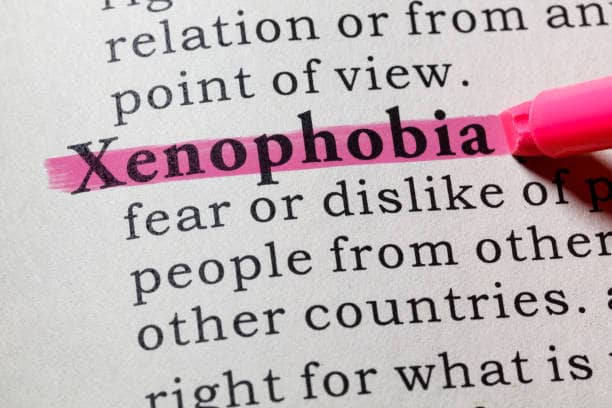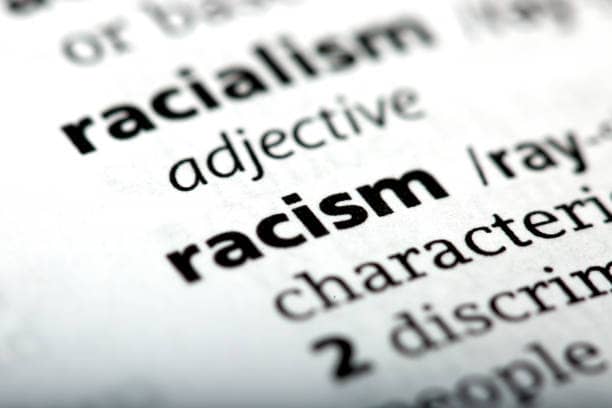Xenophobia vs Racism: Understanding the Differences
2 June 2023 | 5 mins read
- Employee resources
- HR resources
- Staff resources
- Student resources
Xenophobia and racism are two terms that are often used interchangeably, but they actually have distinct meanings. While both concepts involve prejudice and discrimination, they differ in their focus and scope.

Xenophobia refers specifically to the fear or hatred of foreigners or strangers, while racism involves the belief that one race is superior to others.
Xenophobia is often rooted in a fear of the unknown or unfamiliar, and can manifest in a variety of ways, such as hostility towards immigrants, refugees, or people of different religions or cultures. It can also be fueled by economic concerns, as some people may perceive immigrants as a threat to their jobs or resources.
Xenophobia can be harmful not only to its targets, but also to society as a whole, as it can lead to social fragmentation and conflict.
Racism, on the other hand, is a broader concept that encompasses not only xenophobia, but also discrimination based on race or ethnicity. It can take many forms, such as racial slurs, stereotypes, or systemic inequalities.
Racism can be deeply ingrained in social structures and institutions, and can have serious consequences for individuals and communities, such as unequal access to education, healthcare, or employment opportunities.
Understanding the differences between xenophobia and racism is important for combating prejudice and discrimination in all its forms.
Xenophobia vs Racism: What’s the Difference?
What is Xenophobia?
Xenophobia is a fear or hatred of strangers or foreigners.

It is a natural human tendency to be fearful of people classified as “other.” The bases on which this classification rests, such as race, ethnicity, or nationality, are culturally constructed and can vary across different societies and historical periods.
Xenophobia can manifest in various forms, including hostility, anxiety, or avoidance behaviors towards people who are perceived as different or unfamiliar.
What is Racism?
Racism, on the other hand, is a broader concept that encompasses not only fear and hatred of strangers but also a belief that racial differences produce the inherent superiority of a particular race.

Racism is a system of oppression that operates on a societal level, where people are discriminated against based on their physical traits, such as skin color or facial features. Racism can be manifested in various forms, including hate speech, intolerance, and systemic discrimination.
Xenophobia vs Racism: Key Differences
Although xenophobia and racism share some similarities, they are conceptually distinct.
The main difference between xenophobia and racism is that xenophobia is rooted in fear and anxiety towards strangers, while racism is based on the belief in the inherent superiority of one race over another.
Xenophobia is often a response to cultural differences, language barriers, or unfamiliar customs, while racism is based on categorical distinctions that are often arbitrary and phenotypically based. Xenophobia can be directed towards any group that is perceived as different, while racism is usually directed towards people of color or other marginalized groups.
Furthermore, xenophobia can be a cultural phenomenon that is not necessarily related to race or ethnicity. For example, cultural xenophobia can manifest in hostility towards people who wear hijabs or other religious clothing. In contrast, racism is often based on a white supremacist ideology that has been historically used to justify the oppression of African Americans, Native Americans, and other people of color.
In conclusion, understanding the differences between xenophobia and racism is crucial for promoting cultural diversity, human rights, and equality. Educating ourselves and others about the harmful effects of discrimination and oppression can help us build a more inclusive and just society that celebrates our differences rather than fearing them.
Xenophobia: Understanding the Concept
Defining Xenophobia
Xenophobia is defined as the fear or hatred of strangers or foreigners. It is a concept that has been present throughout human history and can be seen in various cultures and societies.
Xenophobia is often rooted in a lack of understanding or familiarity with people who are perceived as different from oneself. It can manifest in many ways, from subtle forms of exclusion to outright violence.
History of Xenophobia
Xenophobia has been present throughout human history. In ancient times, people often viewed those from other tribes or cultures as threats to their own safety and way of life. European colonialism in the 19th and 20th centuries led to the oppression and exclusion of many indigenous peoples.
In more recent times, xenophobia has been fueled by factors such as economic inequality, cultural differences, and political tensions.
Xenophobia in the Modern World
Xenophobia remains a significant issue in the modern world. The COVID-19 pandemic has led to an increase in xenophobic attitudes towards people from certain countries or ethnic groups. Immigrants are often targeted with xenophobic rhetoric and policies, and hate crimes against minority groups continue to occur.

Xenophobia can also be seen in the workplace, where people from different backgrounds may face discrimination or exclusion.
To combat xenophobia, it is important to educate ourselves and others about different cultures and backgrounds. We must also work to create more inclusive societies that value diversity and promote equality.
By understanding the root causes of xenophobia and taking action to address them, we can create a more just and equitable world for all.
Racism: Understanding the Concept
Defining Racism
Racism is a form of discrimination that is based on the belief that certain races are superior or inferior to others. This belief can lead to prejudice, hatred, and even violence towards members of the targeted race. Racism can be expressed in many ways, including through language, behavior, and social policies.
History of Racism
Racism has a long and complex history, with roots that can be traced back to colonialism and slavery. The idea of racial superiority was used to justify the subjugation of people of color, and this ideology was perpetuated through various social systems, such as Jim Crow laws in the United States.
Racism in the Modern World
While overt racism has become less socially acceptable in many parts of the world, it still exists in more subtle forms. Systemic racism refers to the ways in which social and political systems perpetuate discrimination against certain racial groups. For example, racial profiling by law enforcement or discriminatory lending practices by banks.
The COVID-19 pandemic has also highlighted the persistence of racism in the modern world. Some people have used the pandemic as an excuse to discriminate against people of Asian descent, blaming them for the spread of the virus. This type of racism is not only harmful to individuals, but it also perpetuates harmful stereotypes and can lead to further discrimination.
Effects of Xenophobia and Racism
Individual Effects
Xenophobia and racism can have a profound impact on individuals. It can lead to feelings of anxiety, fear, and isolation. Individuals who experience discrimination and prejudice based on their race or ethnicity may experience a range of negative effects including:
- Depression and anxiety
- Low self-esteem
- Physical health problems such as high blood pressure and heart disease
- Reduced access to education, employment, and other opportunities
Furthermore, xenophobia and racism can also lead to a sense of belongingness and identity crisis among individuals who are targeted. It can lead to a loss of cultural identity and can make people feel like they do not belong anywhere.
Societal Effects
The impact of xenophobia and racism is not limited to individuals alone. It can have far-reaching consequences for society as a whole. Some of the societal effects of xenophobia and racism include:
- Reduced social cohesion and trust
- Increased social tension and conflict
- Reduced economic growth and development
- Reduced access to education, healthcare, and other basic services
- Political instability and unrest
Moreover, xenophobia and racism can lead to the stigmatization of entire communities, which can perpetuate discrimination and prejudice for generations. It can also lead to the marginalization of certain groups, which can make it difficult for them to participate fully in society.
In conclusion, the effects of xenophobia and racism are far-reaching and can have a profound impact on individuals and society as a whole. It is important to recognize the harmful effects of discrimination and prejudice and work towards building a more inclusive and equitable society.






